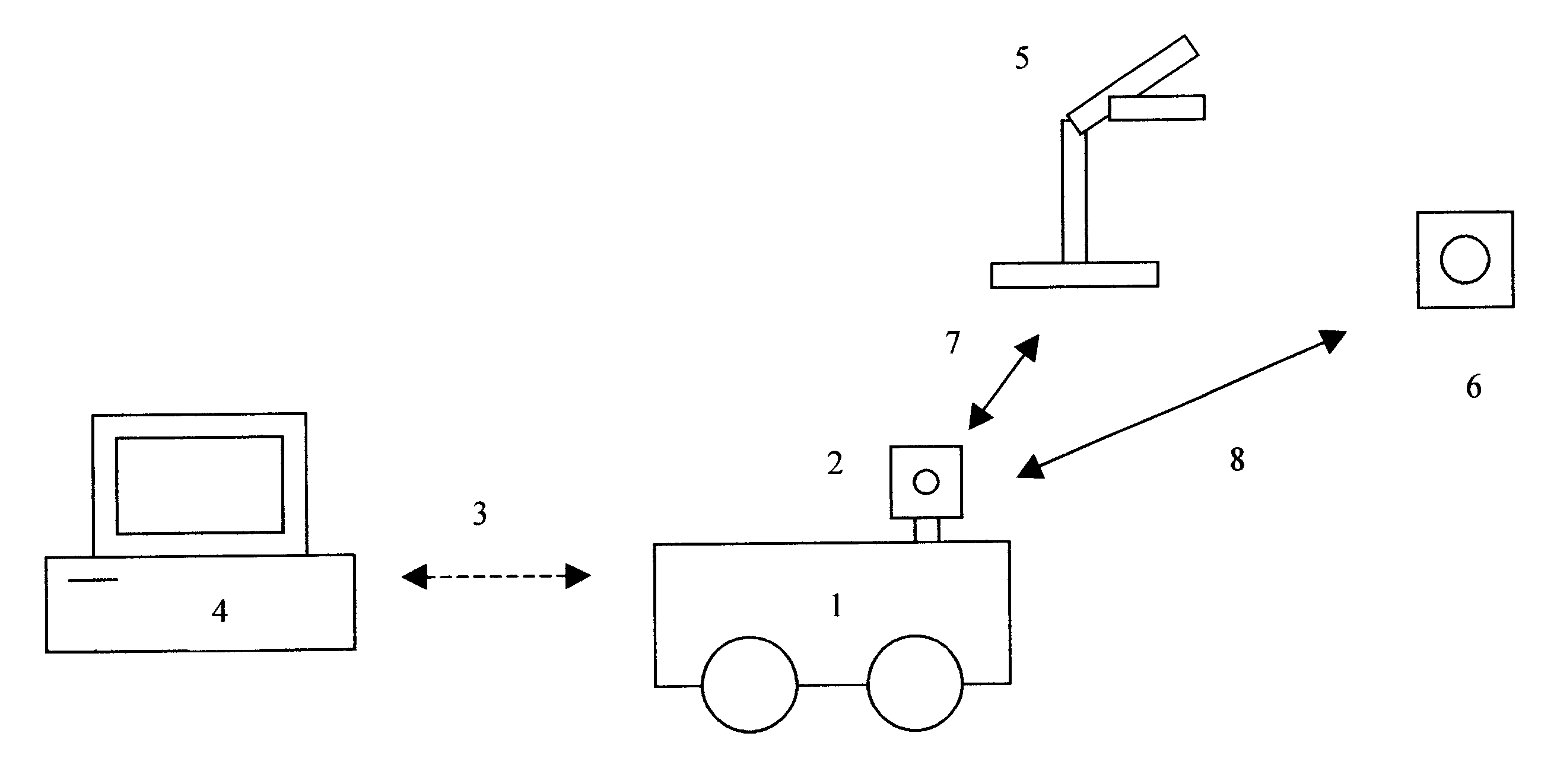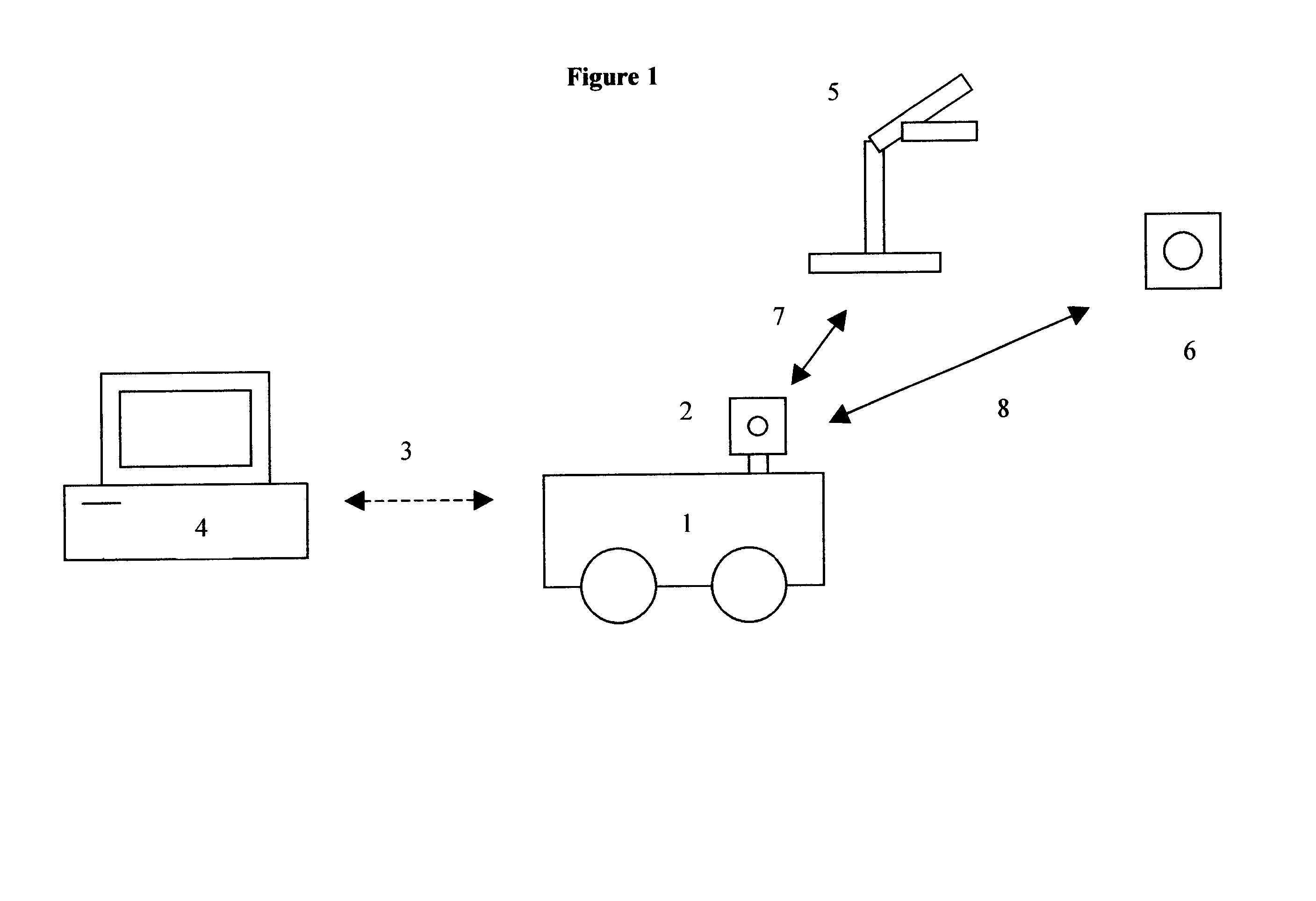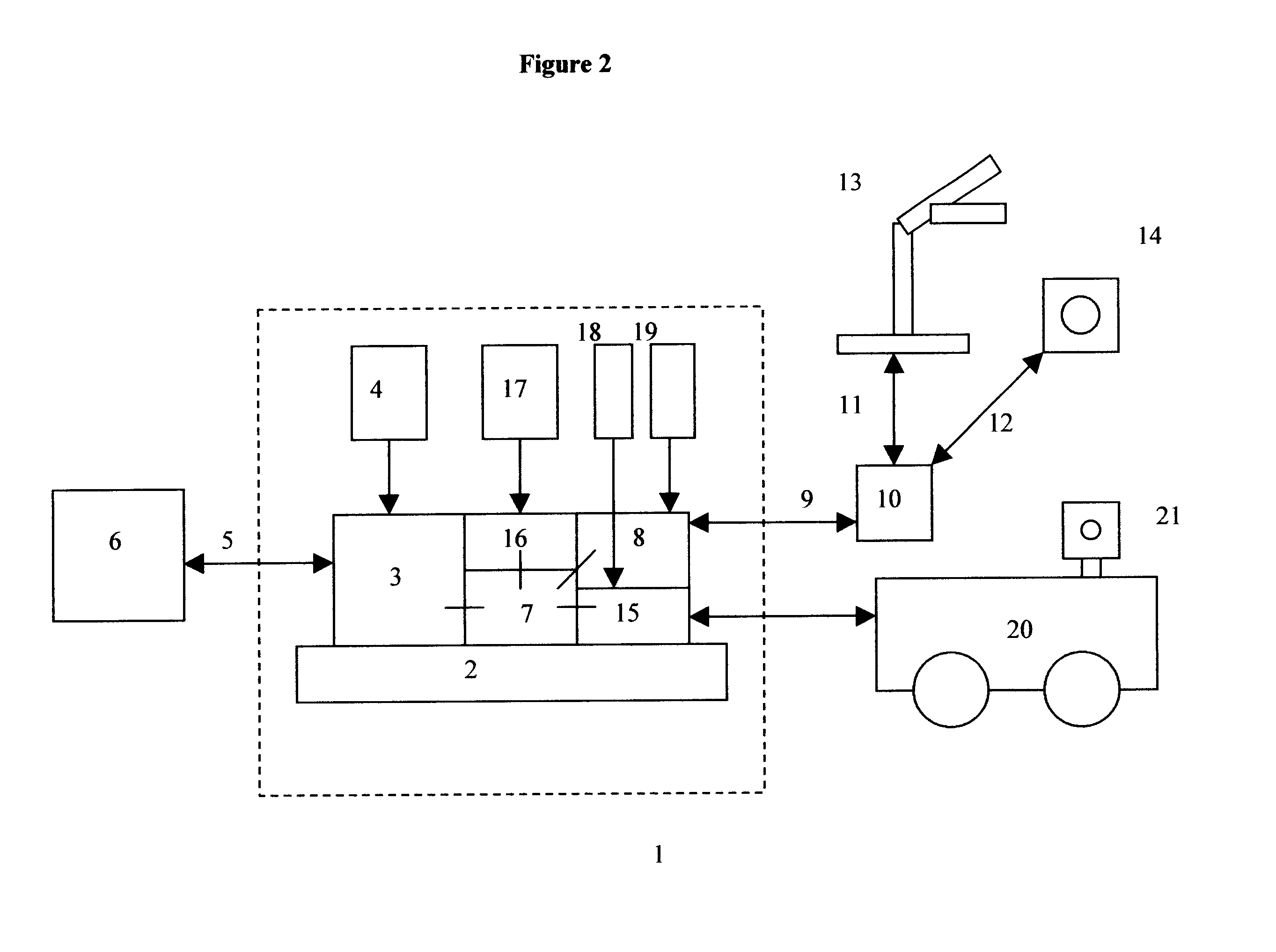Mobile robotic with web server and digital radio links
a robotic and web server technology, applied in special data processing applications, navigation instruments, program control, etc., can solve the problems of limited battery life, difficult to devise flexible and general purpose systems suitable for widespread use, and difficult to achieve robotic artificial intelligen
- Summary
- Abstract
- Description
- Claims
- Application Information
AI Technical Summary
Problems solved by technology
Method used
Image
Examples
Embodiment Construction
FIG. 3 shows a diagram of a mobile robot (1) that may be constructed based upon a battery powered chassis with motorized wheels (2), controlled by an Axis ETRAX 100 Developer Board (3) (Axis Communication AB, Lund, Sweden). This developer board, which may be used as the main robotic control unit, contains an ETRAX 100 32 bit central processor unit, 2 megabytes flash memory, and 8 megabytes ram. The software on this board runs using an embedded Linux operating system (uClinux based on 2.0.38 Linux). The developer board is connected to an Ericcson bluetooth module (4) by a RS232 serial port, driven by Axis bluetooth driver software. The developer board is additionally connected to a wireless Internet connection (5) (using a sprint PCS cell phone (6)) by a second RS232 serial port, driven by the onboard Axis "boa" web server software.
The robot's motorized wheels (2) are controlled through an interface to the Axis developer board's parallel port (3). The robot additionally has an onboar...
PUM
 Login to View More
Login to View More Abstract
Description
Claims
Application Information
 Login to View More
Login to View More - R&D
- Intellectual Property
- Life Sciences
- Materials
- Tech Scout
- Unparalleled Data Quality
- Higher Quality Content
- 60% Fewer Hallucinations
Browse by: Latest US Patents, China's latest patents, Technical Efficacy Thesaurus, Application Domain, Technology Topic, Popular Technical Reports.
© 2025 PatSnap. All rights reserved.Legal|Privacy policy|Modern Slavery Act Transparency Statement|Sitemap|About US| Contact US: help@patsnap.com



